 Convert, it's urgent! “I don't get tired as long as I have life, as long as Christ keeps me alive, I will shout, I will always shout: Brothers, please convert! Brothers, please convert, it's urgent! Don't waste time, it's urgent! Because many are waiting for great events little by little. No! The great events are going to happen in a short period, of days! All of them! And the Warning will come! [...] Let's trust in the word of Christ, and let's ask the Holy Spirit for discernment so as not to make wrong decisions" –Luz de Maria.
Convert, it's urgent! “I don't get tired as long as I have life, as long as Christ keeps me alive, I will shout, I will always shout: Brothers, please convert! Brothers, please convert, it's urgent! Don't waste time, it's urgent! Because many are waiting for great events little by little. No! The great events are going to happen in a short period, of days! All of them! And the Warning will come! [...] Let's trust in the word of Christ, and let's ask the Holy Spirit for discernment so as not to make wrong decisions" –Luz de Maria.****
(466) – Message from Heaven to Sister Beghe, France. Make the Sign of the Cross and read all
§1: At every Holy Mass, I offer Myself to My Heavenly Father for your salvation
§2: Whoever wishes to be saved must first and foremost hold the Catholic faith
§3: Return to the Divine Cult of all time
§4: The “Symbol” of Saint Athanasius
§5: Pope Pius V, Apostolic Constitution «Quo Primum»
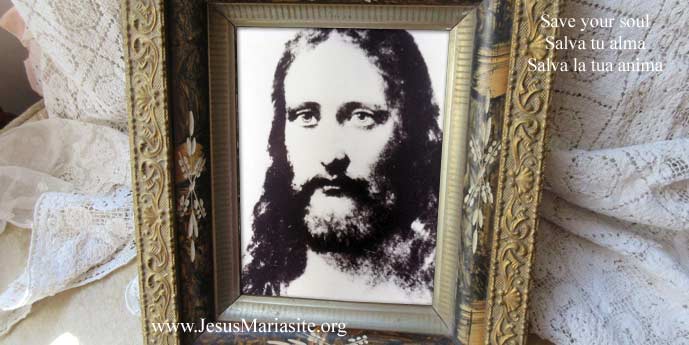
§1
(Reading: 4-5 mins)
«My dearest ones, My beloved ones, be blessed, you who are so close to My Sacred Heart.
I love you so much that I never cease to renew My Sacrifice on the Cross in your daily lives.
At every Holy Mass, I offer Myself to My Heavenly Father for your salvation, in all the hardship, suffering, and cruelty of My Passion and My Cross.
Holy Mass is the bloodless renewal of My Sacrifice, but what does that mean?
Does it mean that at the altar of your church, all is bloodless, all is quiet, all is repetitive in boredom for some, in impatience to get it over with for others?
My children, if your eyes could see the invisible, you would see Me at Mass carrying My Cross on the long road to Calvary. You would see Me throughout the events that led from the Garden of Olives to My Resurrection, passing through all the phases of My sufferings and humiliations:
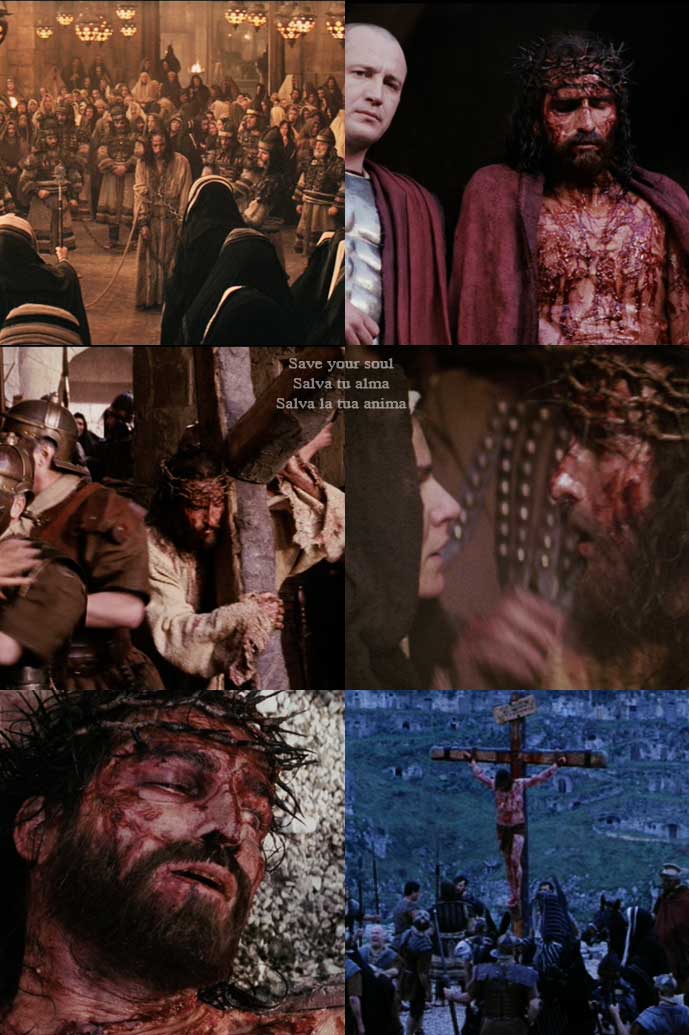
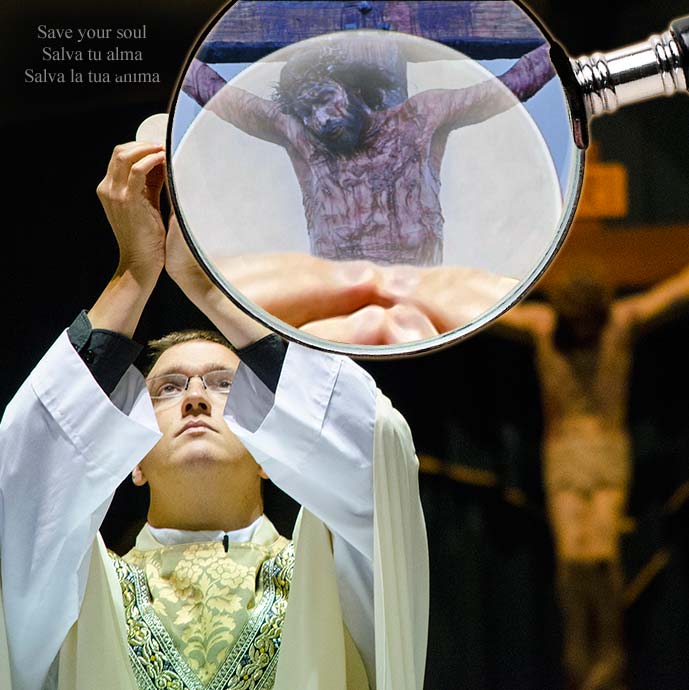
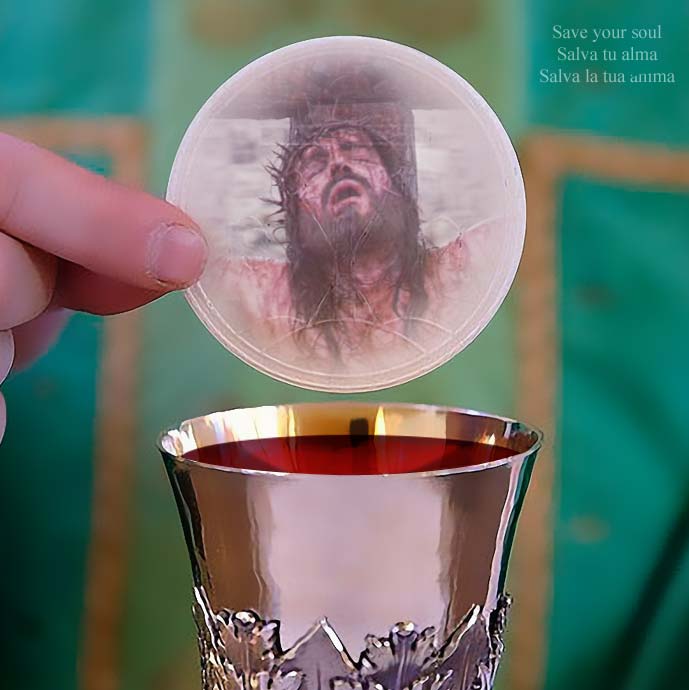
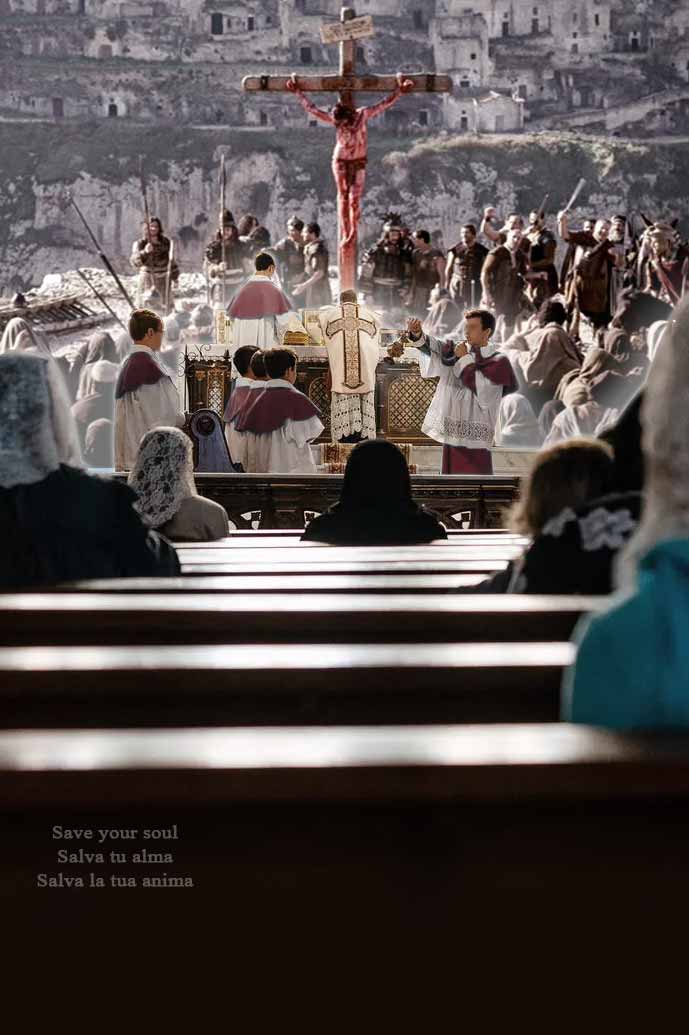
- My scourging; My crowning with thorns.
- My falls; My lacerations.
- My nakedness; My hands and feet pierced and nailed to the wood of the Cross.
- My hanging with arms wide open to draw you all to Myself.
- My thirst for your repentance; My Death in full lucidity.
- And then, what has not been seen, the attack on My Soul for all the demons of hell, their loathsome embrace, their wounding, malodorous and agonizing fury.
My spiritual battle was won, and I ascended away from their lacerating claws and stinking breath, and, rising to earth to resurrect Myself, I passed through ‘the underworlds’, the sojourns of souls after death, some more tenebrous than others, and opened Purgatory to souls destined to enter My Paradise but not yet purified.
§2
Indeed, until I had offered Myself to My Father for the salvation of souls, the invisible world offered no Christian zones of satisfaction for sins, and Paradise was empty.
The Limbo of the Righteous, also called the Limbo of the Patriarchs, was a zone of believers in Yahweh awaiting their liberation, but the Lord Jesus, I who speak to you, had not yet revealed the Mystery of the Holy Trinity; yet every soul who enters the Christian spheres of the invisible world – Purgatory and Paradise – must have pledged allegiance to the Mystery of the Holy Trinity, the one God in Three Persons, according to the symbol of Saint Athanasius (6th century) [1] which begins thus:
“Whoever wishes to be saved must first and foremost hold the Catholic faith, and whoever does not keep it inviolably and integrally, without any doubt, will perish eternally.”
Meditate, My dearest, My beloved, My sweetest children of the Heavenly Father, meditate on these words, so clear, unambiguous, but also uncompromising.
Meditate on these two words: “inviolably” and “integrally”.
Wouldn’t some Catholics, wrongly called “recalcitrant” or “fundamentalists” by those who appreciate modernity and changes in the Church, rather have the holy will, faithful to the teaching of the Son of God and Son of Man, to preserve His teaching “inviolably” and “integrally”?
§3
Should what has been taught by Jesus Christ and, following in His footsteps, by the Holy Catholic Church for centuries, accompany modern times with its outrages, impiety and drifts, or should it not rather remain rooted in its “inviolability” and “integrity”?
To ask the question is to answer it.
My dear children, flee from the novelties brought to Divine worship: man changes, but God does not.
Return to the Divine Cult of all time, as it has been conceived and endorsed over the centuries – codified irrevocably by the Council of Trent and by Pope St. Pius V’s Bull “Quo Primum Tempore” (1570) – so that, faithful to the Symbol of St. Athanasius, you may desire to be saved by holding the Catholic faith inviolably and integrally.
But to those of you who, in good faith but uninformed, think that Pope Paul VI’s authority was justified in changing the rite of Mass, I quote an important passage from this Bull of St. Pius V:
“By our present constitution, which is valid in perpetuity, We have decided and We order, under penalty of our curse, that nothing ever be added, subtracted or modified to the Missal which We have just edited.
In the same way, by the provisions of the present document and in the name of our Apostolic Authority, We concede and grant that this same Missal may be followed in its entirety in the Mass sung or read, in any church whatsoever, without any scruples of conscience and without incurring any punishment, condemnation or censure, and that it may validly be used freely and licitly, and this in perpetuity […].
No priest or religious can be obliged to celebrate Mass otherwise than as we have fixed, and that never and at no time can anyone compel or force them to leave this Missal or to abrogate the present instruction or modify it, but that it will always remain in force and valid, in all its force […].”
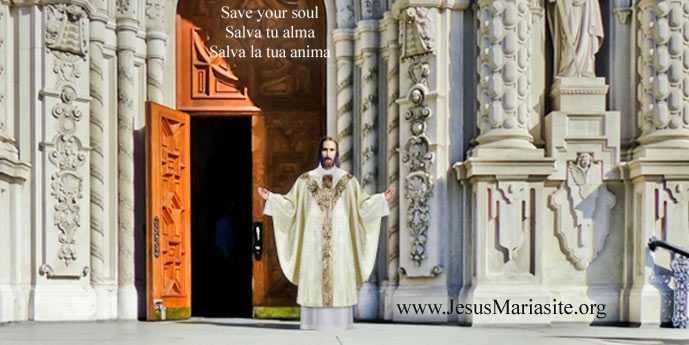
And I, God, affirm that this Bull remains in perpetuity in all its force and vigor, and that no one may lawfully reproach you for remaining faithful to the Mass known as “Tridentine” (so named because of the Council of Trent), or “Traditional” because it has always been said, especially since Saint Gregory I, called the Great, in the 6th century.
And I, Your Lord, give you My graces to follow Me, to be faithful to Me and to love Me.
I bless you in the Name (+) of the Father, the Son and the Holy Spirit. Amen.
Your Lord and Your God».
****
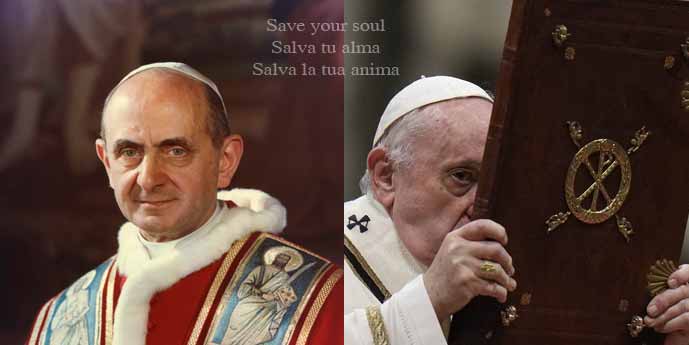
So if the Bull of St. Pius V “remains in force forever with all its strength…”, then what about Pope Paul VI and Pope Francis?
“MIDWAY upon the journey of our life
I found myself within a forest dark,
For the straightforward pathway had been lost…
I cannot well repeat how there I entered,
So full was I of slumber at the moment
In which I had abandoned the true way…
So did my soul, that still was fleeing onward,
Turn itself back to re-behold the pass
Which never yet a living person left…”
–Hell, Canto I, Dante Alighieri
****
§4
The Symbol of Saint Athanasius
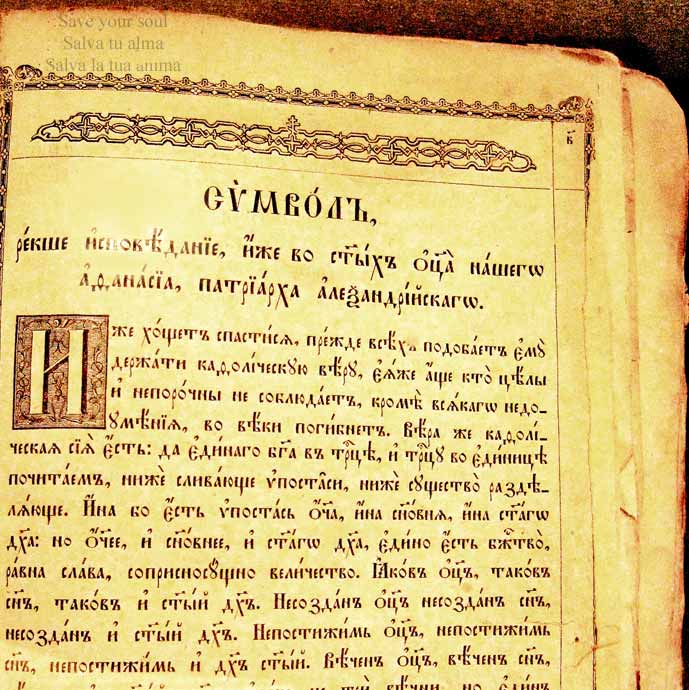
Ancient book in Old Church Slavonic. The page contains the Athanasian Creed. Chernihiv, Museum.
The “Athanasius Creed” is particularly significant for the doctrine of the Trinity, which it expresses strongly in order to combat Arianism. In the liturgy of the Western Church, it was recited in the first part of the Sunday divine office. In the Ambrosian Rite, however, it is used as a hymn in the Office of Readings, in place of the Te Deum, on Trinity Sunday.
- (1) Anyone who wants to be saved must first have the Catholic faith:
- (2) if anyone does not keep it intact and uncorrupted, he will undoubtedly perish eternally.
- (3) The Catholic faith is that we worship one God in the Trinity, and the Trinity in unity,
- (4) without confusing the persons or separating the substance:
- (5) for the person of the Father is one, the person of the Son is another, and the person of the Holy Spirit is another;
- (6) but the divinity of the Father, the Son, and the Holy Spirit is one, their glory is equal, and their majesty is coeternal.
- (7) What the Father is, such is the Son, such also is the Holy Spirit:
- (8) uncreated is the Father, uncreated is the Son, uncreated is the Holy Spirit;
- (9) immense is the Father, immense is the Son, immense is the Holy Spirit;
- (10) eternal is the Father, eternal is the Son, eternal is the Holy Spirit;
- (11) and yet not three eternal, but one eternal;
- (12) nor three uncreated, nor three immense, but one uncreated [immense] and one immense [uncreated].
- (13) So also the Father is almighty, the Son is almighty, the Holy Spirit is almighty;
- (14) and yet not three almighty, but one almighty.
- (15) Thus God is the Father, God is the Son, God is the Holy Spirit;
- (16) and yet not three Gods, but one God.
- (17) Thus the Father is Lord, the Son is Lord, the Holy Spirit is Lord;
- (18) and yet not three Lords, but one Lord:
- (19) for just as Christian truth obliges us to profess each person individually as God and Lord,
- (20) so the Catholic religion forbids us to speak of three Gods or Lords.
- (21) The Father was not made by anyone, nor created, nor begotten;
- (22) the Son is alone of the Father, not made nor created, but begotten;
- (23) the Holy Spirit (is) of the Father and of the Son, not made nor created, nor begotten, but proceeding.
- (24) Therefore, there is one Father, not three Fathers; one Son, not three Sons; one Holy Spirit, not three Holy Spirits.
- (25) And [-!] in this Trinity nothing is before or after, nothing is greater or lesser,
- (26) but all three persons are coeternal and coequal.
- (27) So that in everything, as has been said above, we must venerate both the unity in the Trinity and the Trinity in the unity [the Trinity in the unity that the unity in the Trinity].
- (28) Whoever wishes to be saved must think thus of the Trinity.
- (29) But it is necessary for eternal salvation to believe faithfully in the incarnation of our Lord Jesus Christ.
- (30) It is therefore our true faith that we confess that our Lord Jesus Christ, the Son of God, is [likewise] [and] God and man:
- (31) He is God begotten of the substance of the Father before the ages, and He is man born of the substance of His mother in time;
- (32) perfect God, perfect man, subsisting in an intelligent soul and human flesh;
- (33) equal to the Father according to His divinity, inferior to the Father according to His humanity;
- (34) He, though He is God and man, is not two, but one Christ;
- (35) one, however, not through the transformation of divinity into flesh, but through the assumption of humanity into God;
- (36) one in his entirety, not through confusion of substance, but through the unity of person.
- (37) For as one man is one soul and one body, so the one Christ is God and man.
- (38) He suffered for our salvation, descended into hell, rose again on the third day [-!] from the dead,
- (39) ascended into heaven, sits [sat] at the right hand of the Father, from whence he shall come to judge the living and the dead.
- (40) At his coming, all men will rise with their bodies and give an account of their deeds;
- (41) and those who have done good will go to eternal life, but those who have done evil will go to eternal fire.
- (42) This is the Catholic faith: whoever does not believe it faithfully and firmly cannot be saved.
§5
Pope Pius V, Apostolic Constitution «Quo Primum»
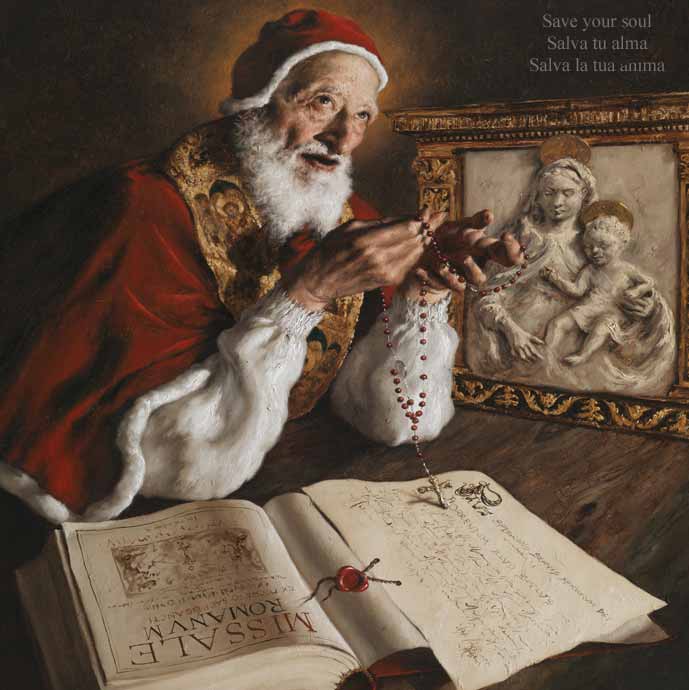
PIUS EPISCOPUS. SERVUS SERVORUM DEI. AD PERPETUAM REI MEMORIAM
(July 14, 1570) «Quo primum tempore…»
- I – From the very first, upon Our elevation to the chief Apostleship, We gladly turned our mind and energies and directed all our thoughts to those matters which concerned the preservation of a pure liturgy, and We strove with God’s help, by every means in our power, to accomplish this purpose. For, besides other decrees of the sacred Council of Trent, there were stipulations for Us to revise and re-edit the sacred books: the Catechism, the Missal and the Breviary. With the Catechism published for the instruction of the faithful, by God’s help, and the Breviary thoroughly revised for the worthy praise of God, in order that the Missal and Breviary may be in perfect harmony, as fitting and proper – for its most becoming that there be in the Church only one appropriate manner of reciting the Psalms and only one rite for the celebration of Mass – We deemed it necessary to give our immediate attention to what still remained to be done, viz, the re-editing of the Missal as soon as possible.
- II – Hence, We decided to entrust this work to learned men of our selection. They very carefully collated all their work with the ancient codices in Our Vatican Library and with reliable, preserved or emended codices from elsewhere. Besides this, these men consulted the works of ancient and approved authors concerning the same sacred rites; and thus they have restored the Missal itself to the original form and rite of the holy Fathers.
- III – When this work has been gone over numerous times and further emended, after serious study and reflection, We commanded that the finished product be printed and published as soon as possible, so that all might enjoy the fruits of this labor; and thus, priests would know which prayers to use and which rites and ceremonies they were required to observe from now on in the celebration of Masses.
- IV – Let all everywhere adopt and observe what has been handed down by the Holy Roman Church, the Mother and Teacher of the other churches, and let Masses not be sung or read according to any other formula than that of this Missal published by Us. This ordinance applies henceforth, now, and forever, throughout all the provinces of the Christian world, to all patriarchs, cathedral churches, collegiate and parish churches, be they secular or religious, both of men and of women – even of military orders – and of churches or chapels without a specific congregation in which conventual Masses are sung aloud in choir or read privately in accord with the rites and customs of the Roman Church. This Missal is to be used by all churches, even by those which in their authorization are made exempt, whether by Apostolic indult, custom, or privilege, or even if by oath or official confirmation of the Holy See, or have their rights and faculties guaranteed to them by any other manner whatsoever.
- V – This new rite alone is to be used unless approval of the practice of saying Mass differently was given at the very time of the institution and confirmation of the church by Apostolic See at least 200 years ago, or unless there has prevailed a custom of a similar kind which has been continuously followed for a period of not less than 200 years, in which most cases We in no wise rescind their above-mentioned prerogative or custom. However, if this Missal, which we have seen fit to publish, be more agreeable to these latter, We grant them permission to celebrate Mass according to its rite, provided they have the consent of their bishop or prelate or of their whole Chapter, everything else to the contrary notwithstanding.
- VI – All other of the churches referred to above, however, are hereby denied the use of other missals, which are to be discontinued entirely and absolutely; whereas, by this present Constitution, which will be valid henceforth, now, and forever, We order and enjoin that nothing must be added to Our recently published Missal, nothing omitted from it, nor anything whatsoever be changed within it under the penalty of Our displeasure. We specifically command each and every patriarch, administrator, and all other persons or whatever ecclesiastical dignity they may be, be they even cardinals of the Holy Roman Church, or possessed of any other rank or pre-eminence, and We order them in virtue of holy obedience to chant or to read the Mass according to the rite and manner and norm herewith laid down by Us and, hereafter, to discontinue and completely discard all other rubrics and rites of other missals, however ancient, which they have customarily followed; and they must not in celebrating Mass presume to introduce any ceremonies or recite any prayers other than those contained in this Missal.
- VII – Furthermore, by these presents [this law], in virtue of Our Apostolic authority, We grant and concede in perpetuity that, for the chanting or reading of the Mass in any church whatsoever, this Missal is hereafter to be followed absolutely, without any scruple of conscience or fear of incurring any penalty, judgment, or censure, and may freely and lawfully be used. Nor are superiors, administrators, canons, chaplains, and other secular priests, or religious, of whatever title designated, obliged to celebrate the Mass otherwise than as enjoined by Us. We likewise declare and ordain that no one whosoever is forced or coerced to alter this Missal.
- VIII – That this present document cannot be revoked or modified, but remain always valid and retain its full force notwithstanding the previous constitutions and decrees of the Holy See, as well as any general or special constitutions or edicts of provincial or synodal councils, and notwithstanding the practice and custom of the aforesaid churches, established by long and immemorial prescription – except, however, if more than two hundred years’ standing.
- IX – It is Our will, therefore, and by the same authority, We decree that, after We publish this constitution and the edition of the Missal, the priests of the Roman Curia are, after thirty days, obliged to chant or read the Mass according to it; all others south of the Alps, after three months; and those beyond the Alps either within six months or whenever the Missal is available for sale.
- X – Wherefore, in order that the Missal be preserved incorrupt throughout the whole world and kept free of flaws and errors, the penalty for nonobservance for printers, whether mediately or immediately subject to Our dominion, and that of the Holy Roman Church, will be the forfeiting of their books and a fine of one hundred gold ducats, payable ipso facto to the Apostolic Treasury. Further, as for those located in other parts of the world, the penalty is excommunication latae sententiae, and such other penalties as may in Our judgment be imposed; and We decree by this law that they must not dare or presume either to print or to publish or to sell, or in any way to accept books of this nature without Our approval and consent, or without the express consent of the Apostolic Commissaries of those places, who will be appointed by Us. Said printer must receive a standard Missal and agree faithfully with it and in no wise vary from the Roman Missal of the large type (secundum magnum impressionem).
- XI – Accordingly, since it would be difficult for this present pronouncement to be sent to all parts of the Christian world and simultaneously come to light everywhere, We direct that it be, as usual, posted and published at the doors of the Basilica of the Prince of the Apostles, also at the Apostolic Chancery, and on the street at Campo Flora; furthermore, We direct that printed copies of this same edict signed by a notary public and made official by an ecclesiastical dignitary possess the same indubitable validity everywhere and in every nation, as if Our manuscript were shown there.
- XII – Therefore, no one whosoever is permitted to alter this notice of Our permission, statute, ordinance, command, precept, grant, indult, declaration, will, decree, and prohibition. Would anyone, however, presume to commit such an act, he should know that he will incur the wrath of Almighty God and of the Blessed Apostles Peter and Paul.
- Given at St. Peter’s in the year of the Lord’s Incarnation, 1570, on the 14th of July of the Fifth year of Our Pontificate.
****
- Saint Athanasius of Alexandria was an ancient Greek bishop and theologian, eighth Patriarch of the Orthodox Church of Alexandria from 328, with various interruptions, until 373. He is one of the four Fathers of the Eastern Church who bear the title “Great,” along with Anthony the Abbot, Basil, and Photius of Constantinople. The Coptic, Catholic, and Orthodox churches venerate him as a saint.
- “Tridentine Mass”, so called because of the Council of Trent
Source: srbeghe.blog

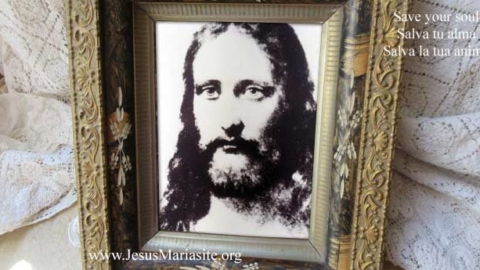
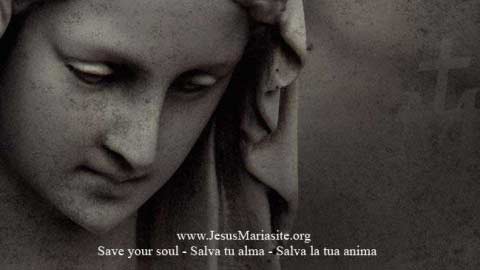
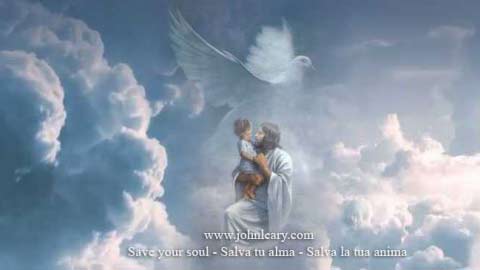


 God the Father: «
God the Father: «



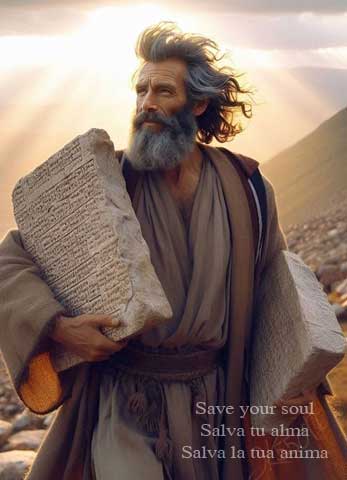
 "If you knew how you shine after duly approaching the Sacrament of Confession. "Jesus is in the Confessional and He hears every word, sees into every corner of your heart and Is eager to bestow the graces inherent in His Forgiveness.
"If you knew how you shine after duly approaching the Sacrament of Confession. "Jesus is in the Confessional and He hears every word, sees into every corner of your heart and Is eager to bestow the graces inherent in His Forgiveness.
 "I ask to end to this abomination! No more of extraordinary Ministers of the Eucharist, no more of Communions in the hand!"
"I ask to end to this abomination! No more of extraordinary Ministers of the Eucharist, no more of Communions in the hand!"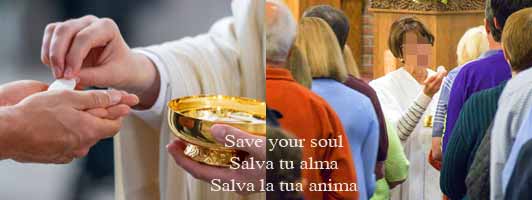
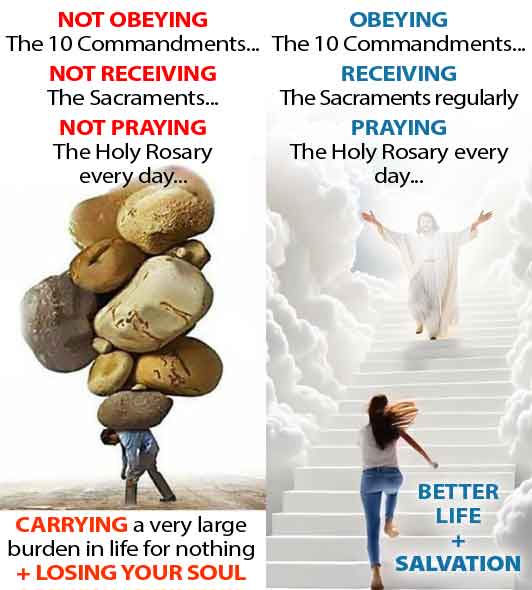
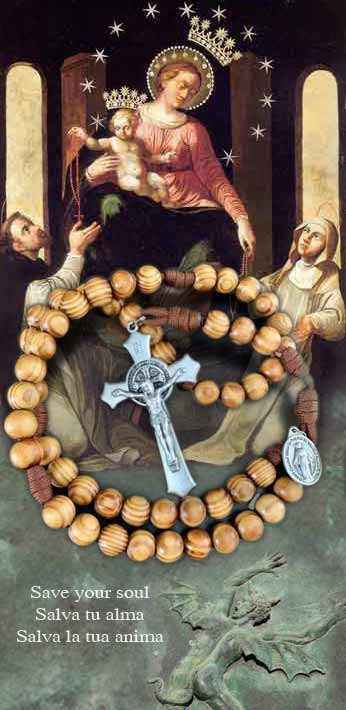


 "Oh Jesus of Divine Mercy, hear my pleadings to you, for I am here to do your Will!"
"Oh Jesus of Divine Mercy, hear my pleadings to you, for I am here to do your Will!"
 "I place myself in the presence of the Most Holy Trinity (Father, Son, and Holy Spirit) and by the power of the Blood of Our Lord Jesus Christ, I break, undo, trample, annihilate, render ineffective, and erase from my physical, psychic, biological, and spiritual being every curse that has been placed on me, on my family and family tree, on any person, family member, or ancestor through acts of occultism or spiritism. By the power of the Precious Blood of Our Lord Jesus Christ and through the intercession of the Blessed Virgin Mary, St. Michael, St. Gabriel, and St. Raphael, I break and render ineffective every curse, whatever its nature, in the Name of our Lord Jesus Christ. Amen (Repeat the prayer 3 times)"
"I place myself in the presence of the Most Holy Trinity (Father, Son, and Holy Spirit) and by the power of the Blood of Our Lord Jesus Christ, I break, undo, trample, annihilate, render ineffective, and erase from my physical, psychic, biological, and spiritual being every curse that has been placed on me, on my family and family tree, on any person, family member, or ancestor through acts of occultism or spiritism. By the power of the Precious Blood of Our Lord Jesus Christ and through the intercession of the Blessed Virgin Mary, St. Michael, St. Gabriel, and St. Raphael, I break and render ineffective every curse, whatever its nature, in the Name of our Lord Jesus Christ. Amen (Repeat the prayer 3 times)"  "O glorious St. Joseph! by your profound humility, by your unalterable meekness, by your invincible patience, by your angelic purity and perfect fidelity that made you a timely imitator of the virtues of Jesus and Mary, I ask you to console me in all my sorrows, to guide me in all my doubts, to defend me in all temptations, to deliver me from all spiritual and material dangers; to extend your arm against all my visible and invisible enemies, breaking and destroying all the snares and barriers that they tend and arm against me. Amen."
"O glorious St. Joseph! by your profound humility, by your unalterable meekness, by your invincible patience, by your angelic purity and perfect fidelity that made you a timely imitator of the virtues of Jesus and Mary, I ask you to console me in all my sorrows, to guide me in all my doubts, to defend me in all temptations, to deliver me from all spiritual and material dangers; to extend your arm against all my visible and invisible enemies, breaking and destroying all the snares and barriers that they tend and arm against me. Amen."  "Oh, blessed Saint Michael, protect us from the attacks and snares of the evil spirits because you know full well that we are poor mortals, fragile and weak, in need of the Mercy of God and of your protection to fulfill the mission that Heaven has commissioned to us. Oh, Saint Michael, may your victorious cry: “who is like God? no one is like God”, suppress and cast into Hell satan and all the evil spirits who prowl about the world seeking the destruction of souls. Amen"
"Oh, blessed Saint Michael, protect us from the attacks and snares of the evil spirits because you know full well that we are poor mortals, fragile and weak, in need of the Mercy of God and of your protection to fulfill the mission that Heaven has commissioned to us. Oh, Saint Michael, may your victorious cry: “who is like God? no one is like God”, suppress and cast into Hell satan and all the evil spirits who prowl about the world seeking the destruction of souls. Amen"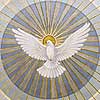 Come, Holy Spirit, send to us from Heaven a ray of your light. Come, Father of the poor, come, giver of gifts, come, light of hearts. Perfect comforter, sweet guest of the soul, sweetest relief. In toil, rest, in heat, shelter, in weeping comfort. O most blessed light, invade into the depths the hearts of your faithful. Without your strength nothing is in man, nothing is without fault. Wash what is sordid, bathe what is parched, heal what bleeds. Bend that which is stiff, warm that which is icy, straighten that which is astray. Give to your faithful who trust in you alone your Holy Gifts. Give virtue and reward, give holy death, give eternal joy. Amen.
Come, Holy Spirit, send to us from Heaven a ray of your light. Come, Father of the poor, come, giver of gifts, come, light of hearts. Perfect comforter, sweet guest of the soul, sweetest relief. In toil, rest, in heat, shelter, in weeping comfort. O most blessed light, invade into the depths the hearts of your faithful. Without your strength nothing is in man, nothing is without fault. Wash what is sordid, bathe what is parched, heal what bleeds. Bend that which is stiff, warm that which is icy, straighten that which is astray. Give to your faithful who trust in you alone your Holy Gifts. Give virtue and reward, give holy death, give eternal joy. Amen.
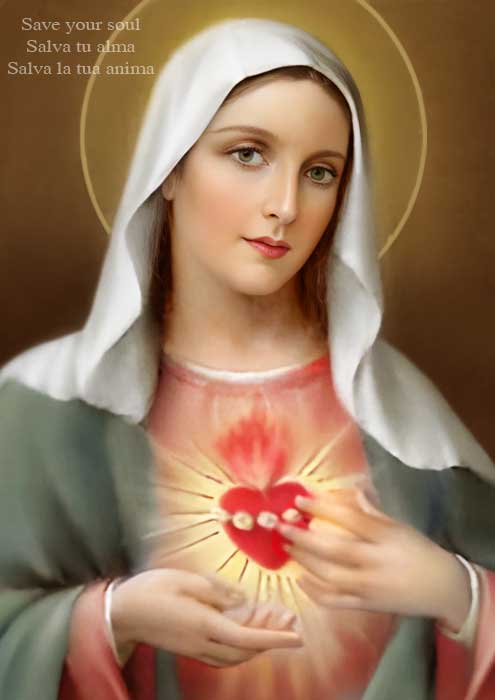
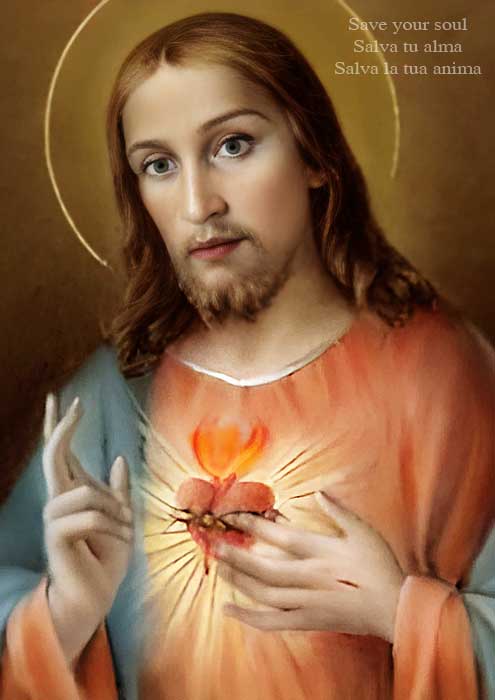
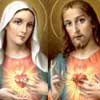 "O Hearts of Jesus and Mary; I consecrate myself, I consecrate my family and the whole world, to your Most Beloved Hearts. Listen to the supplication which I making to you and accept our hearts in Yours, to be delivered and protected we, the whole world, from all evil and all sin. May the protection of your Two Hearts be refuge, strength, and protection, in the daily spiritual struggles. That the power of your Two Hearts irradiates the world so that it is protected from evil and sin. We willingly consecrate ourselves and consecrate all mankind to your Hearts; sure and confident, for your Great Mercy, to obtain the victory over the forces of evil in this world, and the eternal Glory in the Kingdom of God. Amen"
"O Hearts of Jesus and Mary; I consecrate myself, I consecrate my family and the whole world, to your Most Beloved Hearts. Listen to the supplication which I making to you and accept our hearts in Yours, to be delivered and protected we, the whole world, from all evil and all sin. May the protection of your Two Hearts be refuge, strength, and protection, in the daily spiritual struggles. That the power of your Two Hearts irradiates the world so that it is protected from evil and sin. We willingly consecrate ourselves and consecrate all mankind to your Hearts; sure and confident, for your Great Mercy, to obtain the victory over the forces of evil in this world, and the eternal Glory in the Kingdom of God. Amen"